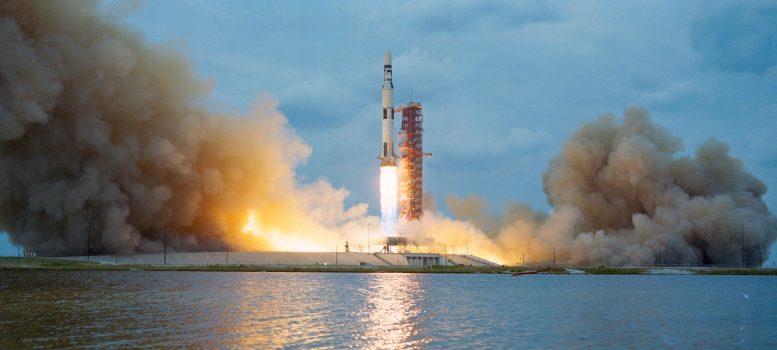
The unmanned Skylab station was launched into orbit by a Saturn V booster. The Saturn V rocket carried humans to the moon and remains the most powerful rocket to reach orbit to date. Credit: NASA
Physics-based acoustical models and historical data combine to correct common misconceptions about the most powerful rocket launched to date.
The Saturn V, which carried mankind to the moon, remains the most powerful rocket to successfully launch to orbit. Its incredible power captures the imagination — but sometimes, it might capture a bit too much imagination. Abundant internet claims about the acoustic energy of the rocket suggest that it melted concrete and lit grass on fire over a mile away.
Such ideas have been proven false. Researchers from Brigham Young University (BYU) used a physics-based model to estimate the acoustic levels of the Saturn V rocket. They obtained a value of 203 decibels, which matches the very limited data recorded in the 1960s. The study appears in The Journal of the Acoustical Society of America, published on behalf of the Acoustical Society of America by AIP Publishing.
To put that number into perspective, commercial jet engines range from around 120 to 160 decibels.
“Decibels are logarithmic, so every 10 decibels is an order of magnitude increase,” said author Kent L. Gee, of BYU. “One hundred and seventy decibels would be equivalent to 10 aircraft engines. Two hundred would be 10,000 engines!”
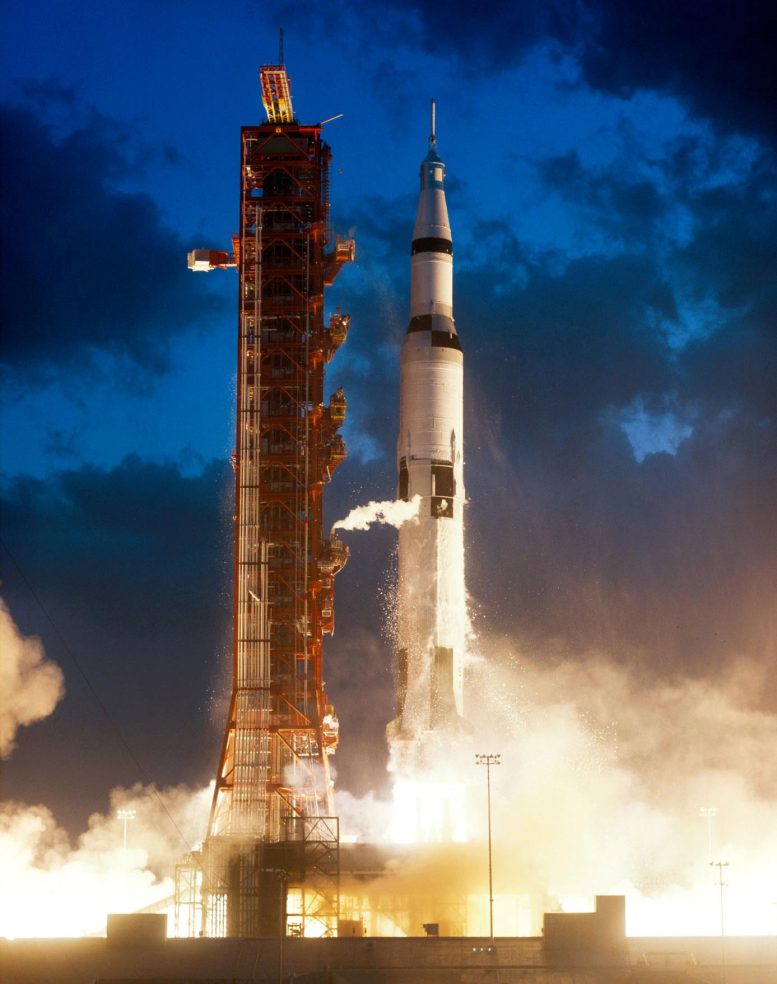
In 1967, the Apollo 4 mission launched from NASA’s Kennedy Space Center. The mission marked the first launch of the Saturn V rocket. Credit: NASA
While the Saturn V was indeed extremely loud, that kind of power is nowhere near sufficient to melt concrete or start grass fires. If reports about these phenomena are true, they likely stem from radiative heating via the plume or debris.
Some of the misunderstanding originates from confusing sound power with sound pressure. The former is like the wattage from a light bulb. The latter is like the brightness from the same bulb: It depends on how far away you’re standing. Mistakes in calculations, changes to the decibel reference system, and the propagation of misinformation have also led to compounding errors.
“The Saturn V has taken on this sort of legendary, apocryphal status,” said Gee. “We felt that, as part of the JASA special issue on Education in Acoustics, it was an opportunity to correct misinformation about this vehicle.”
NASA’s Space Launch System (SLS) Artemis 1 launch is scheduled for the fall of this year, when it will surpass the Saturn V in terms of power and noise. Although Artemis 1 will not have a human crew, the massive SLS rocket will send humans back to the moon in later missions. The scientists have used their framework to predict SLS’s sound levels, and they plan to make acoustical measurements at its launch to help to further refine predictions.
The team of researchers also provided educational tools, like homework problems, to share their findings with college-level physics classrooms. They hope this rocket’s story will show the importance of critically examining data and scientific discussions online.
Reference: “Saturn-V sound levels: A letter to the Redditor” by Kent L. Geeb), Logan T. Mathews, Mark C. Anderson and Grant W. Hart, 23 August 2022, The Journal of the Acoustical Society of America.
DOI: 10.1121/10.0013216

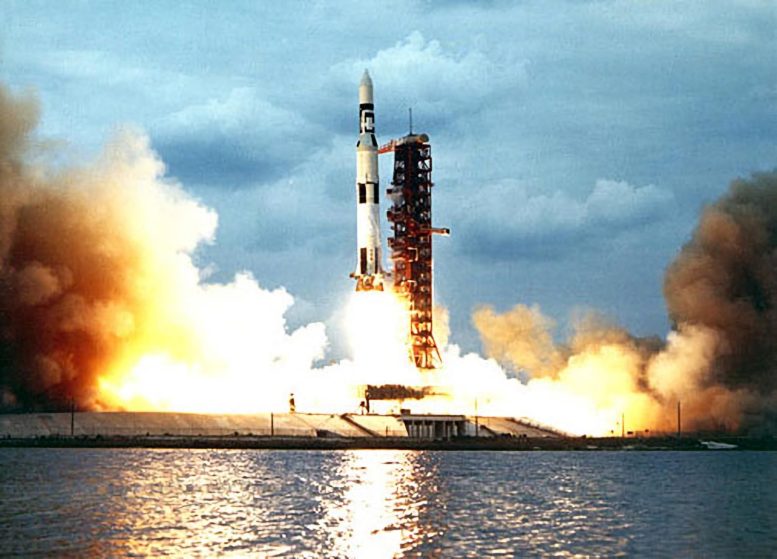
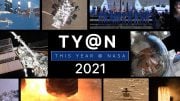
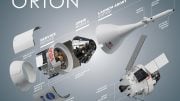
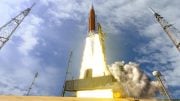
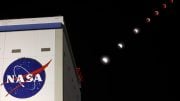
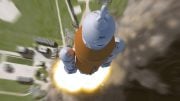

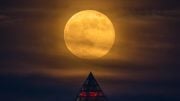
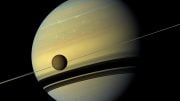
01864211495
The fallacy of your argument is, in part, that all jet engines create the same noise levels, and they don’t. If the premise is invalid, so are any conclusions offered.
Let’s take a Saturn V you fire up but do not release the clamps holding it to the launch tower.
And you let it burn its self out, how about then , would it have melted concrete
I was there for the launch of Apollo 11. I was several miles from the launch pad to the south, watching across a bay. It was loud. The first thing was the trembling of the ground underfoot. Then the pressure wave hit you in the chest. Then the titanic roar that began as a deep rumble and rose in pitch. Then this thing the size of a forty story building, slowly, deliberately got up and left for the moon. I understood why our ancestors thought volcanoes were gods.
Thanks. I’ve always wanted to be there at a launch. Now I know how it feels.
Found it interesting. Good work, relevant stuff👍👍